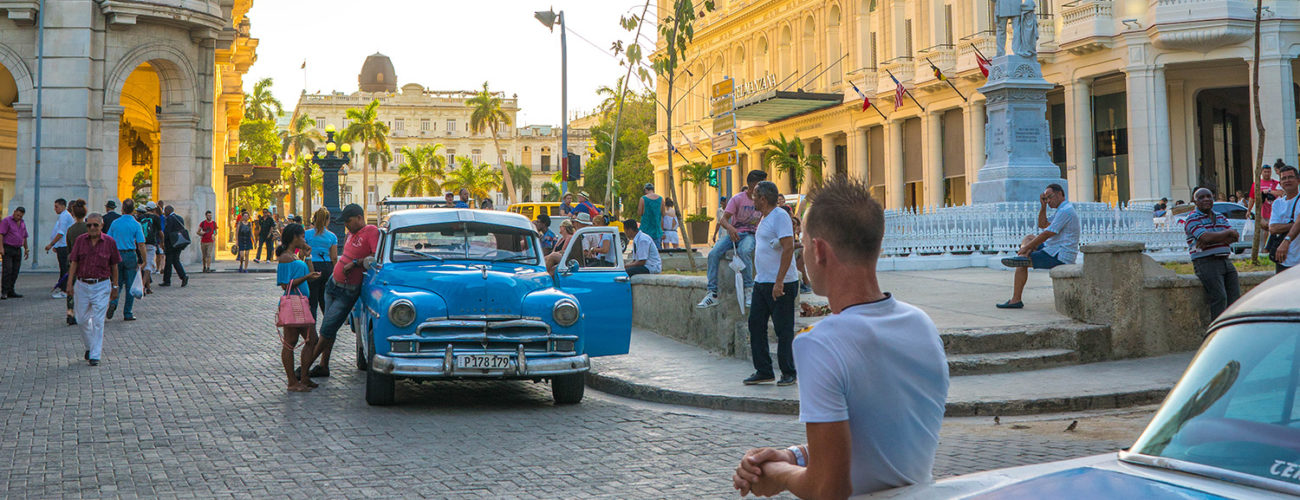“In the beginner’s mind there are many possibilities, but in the expert’s there are few.” ~Shunryu Suzuki, Zen Mind, Beginner’s Mind
I’m fortunate to get to travel internationally several times a year, both for work and personal trips. A few weeks ago, I hopped on a flight to Cuba. The country had been on my list for a while and definitely lived up to the hype, proving to be one of the more interesting places I’ve visited.
It was also one of the few times in my travels that I’ve been almost completely cut off from an internet connection. Even last year, on a weeklong hike through the mountains of Nepal, I had better wifi than I had in Cuba.
But without the constant distraction of my phone, I also had a chance to reflect on my experiences. In particular, I started noticing how much travel impacts me as a designer.
Being uncomfortable
I would be lying if I didn’t admit that travel makes me uncomfortable. Each new trip brings with it the unfamiliar and often, the unexpected. I’ve been lost in foreign airports more times than I can count. Endured crazy, swerving taxi drivers taking a “shortcut” to my hotel. I’ve gotten caught up taking photos and found myself walking through areas of town that I probably shouldn’t be in. While the English language is reasonably widespread, I’m not always able to communicate in my own language. (And even when English is spoken, I’ll often encounter ideas or beliefs that challenge my own.)
These experiences push me to confront my own biases and reframe situations, something I’ve found has important overlaps with my work as a designer:
Travel: Is the area I’m walking through actually unsafe, or is it just new and different?
Design: What assumptions am I working from and how do I validate them?
Travel: How can getting lost turn into an adventure?
Design: How can I reframe challenges as interesting problems to solve?
Travel: What common ground can I find with a stranger, even if we don’t share the same language?
Design: How can I account for differences in communication methods, language, and jargon?
Travel: What other resources do I have at my disposal when I’m without internet?
Design: How do environmental constraints play a role in how people use the things I help build?
Travel: How do I stay open to learning about different cultures, even if they sometimes conflict with my current beliefs?
Design: How can I empathize with users, even if they are very different from me? How do I make sure my team incorporates different perspectives and opinions so we don’t become an echo chamber?
Being uncomfortable in my travels gives me an opportunity to grow and learn. It’s a tool that helps me build the habit of reframing discomfort as curiosity — something essential to design.
Change your environment, change your thoughts
One lesson my parents instilled in me early in life stands out here: to change your attitude, change your environment. This “hack” resurfaced in college when I learned how much physical space influences our cognition. Open spaces, for example, tend to be better for divergent thinking (generating ideas, or thinking “outside the box”). Closed spaces are better for convergent thinking (making decisions).
Feeling stuck? Go somewhere different. It doesn’t have to be a new country or even involve getting on a plane. Find a new area in your city, explore a new building, work from a coffee shop you’ve never been to, or just go outside. Many great thinkers, including Aristotle and Charles Dickens, have also used long walks as a tool to give them a different perspective on their work. The Lean Startup mantra of “get out of the building” rings true here in more ways than one.
This also works in the other direction. When I return from traveling for a long stretch, I’m like a tourist in my own hometown. I get to experience things all over again, but also with fresh eyes.
Our work is influenced by much more than the eight or so hours we spend actually working each day. All of our life experiences — from the places we’ve been to the people we’ve met to the physical space we’re in right now — affect how we approach our work. Intentionally exposing ourselves to new and different experiences gets us a bit closer to “beginner’s mind”.
